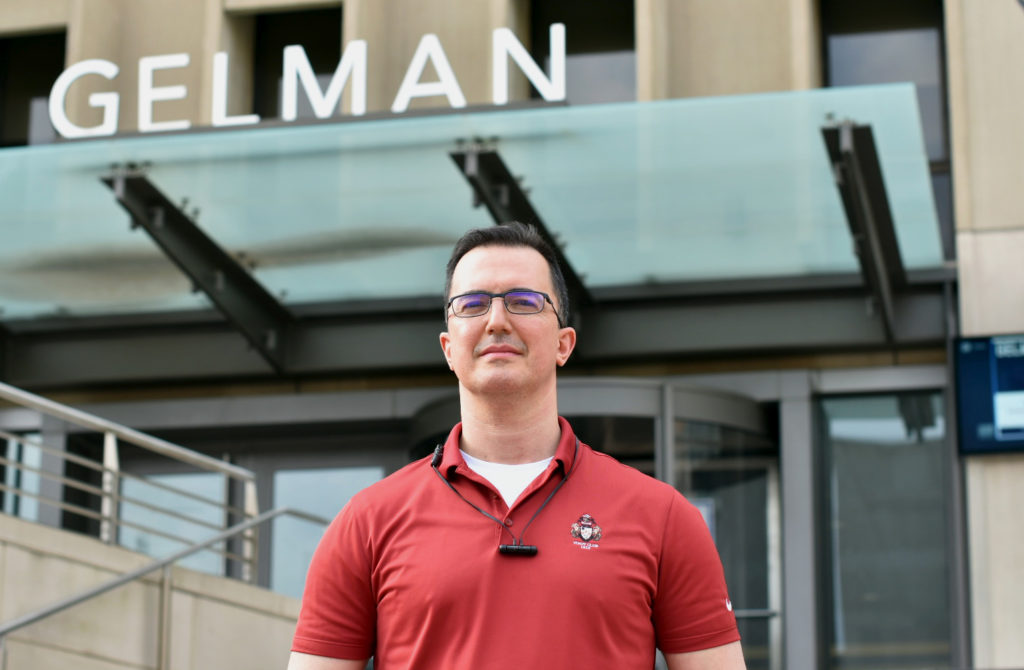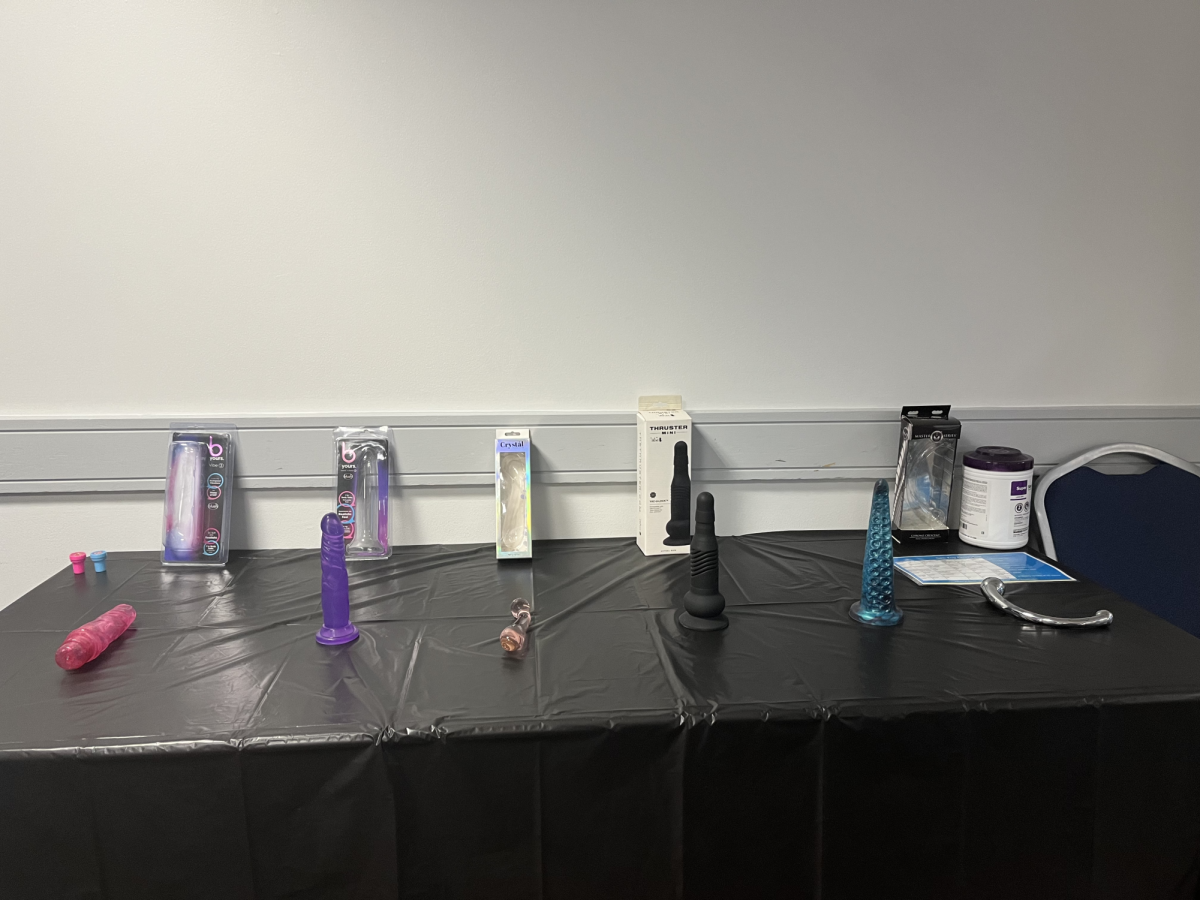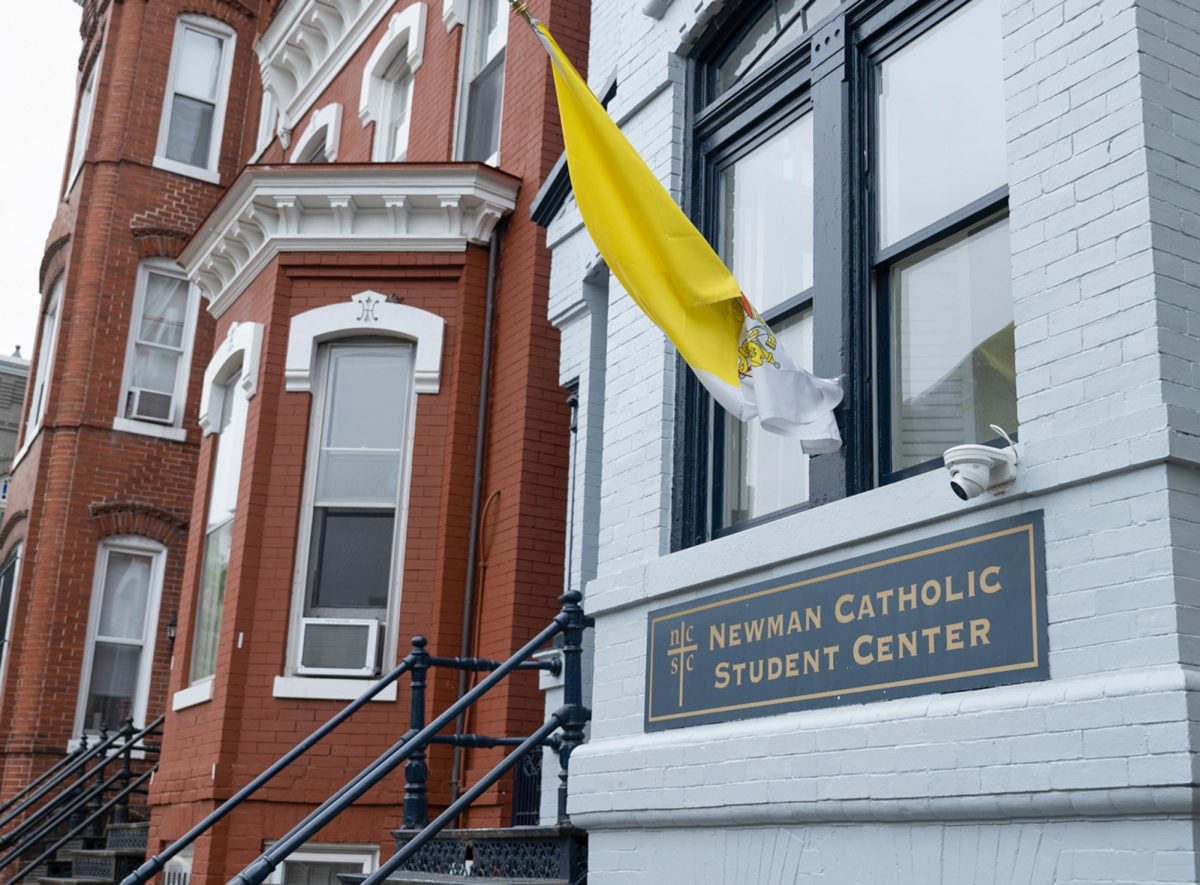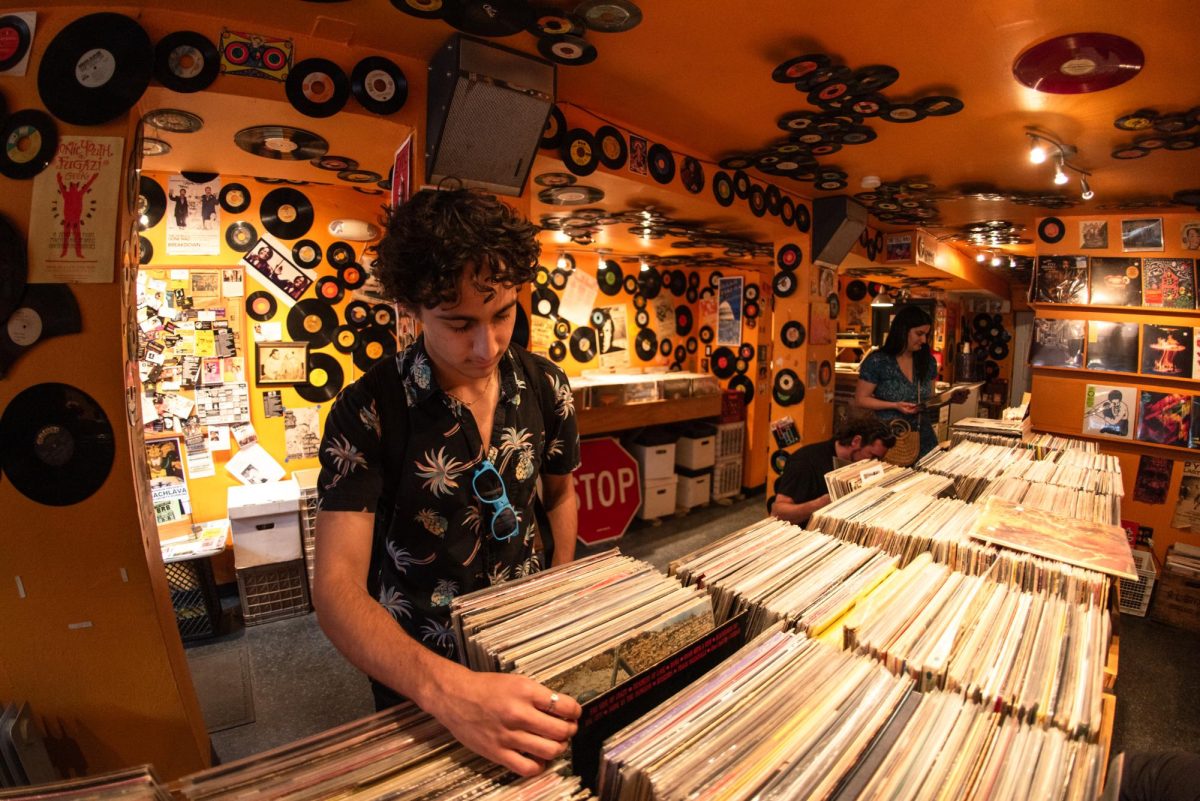For Gelman Library staff, working in an empty library is like working in “Sleeping Beauty’s palace, waiting for the students to come wake it up.”
Valerie Fliss, a course reserves and resource sharing specialist with GW Libraries and Academic Innovation, and Noah Paulovic, a resource sharing specialist, said the library has felt “sleepy” with the majority of students off campus this year during the COVID-19 pandemic. They said that while there are no students to interact with, they’ve carried on their responsibilities of making electronic resources accessible to the GW community for research and classwork during the remote semester.
The library closed in March and limited access in September to students, faculty and staff members with active GWorld cards and permission to remain on campus during the semester, which comes with stringent COVID-19 testing protocol.
Fliss said she splits her time between Gelman and the Virginia Science and Technology Campus Library in Ashburn, Virginia, researching new electronic resources and scanning books to make them electronically available to students and faculty. She said she found the vacant library in Foggy Bottom “spooky at first” and often thought she was hearing voices in the empty stacks.
Fliss added that her responsibilities cultivating online resources for students and managing the distribution of physical resources “are the same” but have shifted to focus more toward finding e-resources or scanning physical materials to make them accessible online for remote students and faculty.
“[Responsibilities] have shifted from focusing on physical books to electronic resources and making sure that the GW community can access our materials remotely,” Fliss said in an email.
Paulovic, who works at the Consortium Loan Service at Gelman Library, said he spends most of his time scanning book and archive resources for professors, digitizing materials for students and managing deliveries to and from the library.
“My days have been very busy since the shift to virtual learning,” Paulovic said. “My job duties have shifted from working on a variety of tasks to primarily digitizing materials.”
The Consortium Loan Service allows GW members to request library materials from any school in the Washington Research Library Consortium, which includes eight other schools in the D.C. area.
The number of library staff has been reduced to fewer than 10 members, but Paulovic said Gelman is large and he often doesn’t know how many people are working at a time. In his unit, Resource Sharing, Paulovic said they usually have about three people managing and distributing resources.
While entrance into the library is allowed only with special permission by reservation, students and faculty have been the main benefactors of the work of these few staff members in making resources available during the past few months of remote learning.
Mary Ellen Wolfinger, a graduate student studying curriculum and instruction, said she continues to use the online database that Gelman staff curate to access journal articles for research and is still loaning out a Chromebook laptop that she borrowed from the library in January 2020.
Wolfinger has taken advantage of many of GW Libraries’ remote resources, like using Gelman’s exterior book drop to return books and GW’s VPN to access social media data and statistics software. Still, she said she misses being able to work in Gelman and use the in-person services, like meeting with research librarians, that she could use before.
“I really miss being able to work in Gelman,” Wolfinger wrote. “I find it easier to focus there, but I understand the University has a responsibility to stop the spread of coronavirus.”
At the same time, Wolfinger doesn’t believe that administrators fully understood the impact on students of closing Gelman the way they did as cases of COVID-19 rose.
“The University didn’t seem to understand that there were resources at Gelman that students could not access remotely and downplayed how much losing access to Gelman has affected students,” Wolfinger said. “The use of Gelman is one of the many services I continue to pay for in my tuition that I am not receiving since campus is essentially closed.”







